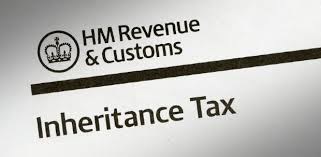Inheritance Tax is Not just a tax on the very wealthy.
Over the years with property prices rising inheritance tax problems aren’t now just a worry for the rich. In fact, under some circumstances, inheritance tax liabilities can cause financial difficulty for less wealthy individuals.
Take John of instance, John is single, he has worked hard all his working life and owns a nice house valued at £450000 he has savings and investments of £50000, so he has a total estate value of £500000. Johns lifetime allowance is £325000 which means that he is £175000 over his lifetime allowance, so John has an IHT problem. Currently if John passed away today his estate would be looking at an IHT bill of £70000.
Looking back at the above example, John’s Inheritance tax bill of £70000 may have to be paid by his personal representatives before any of the estate can be released to them. If they aren’t in a position to pay this amount up front, they may need to take out a short-term loan to clear the debt. They them may be forced to sell John’s house more quickly than they’d wanted to repay the loan.
In any case, they would normally need to settle the bill within six months of the end of the month in which John died- unless they could pay some of the tax in instalments.
Why it can pay to plan early.
Fortunately, there’s a lot you can do to improve your inheritance tax position. In some cases, you can gift assets without losing control of or access to them.
Why it’s important to make a Will
If you haven’t already made a will, this should be the first step in your inheritance tax planning.
If you die without a will (Intestate) your estate may be liable to more inheritance tax and more importantly your assets may not go to the right people. So getting the right advice could be the single most important thing you do for your loved ones.
When a person who is married or in a civil partnership dies, their assets can be transferred to their surviving partner without any inheritance tax liability, meaning their nil rate band is not used. This is called Spouse Exemption.
In these circumstances the percentage of unused nil rate band can be transferred to the surviving partner to use when they die. The unused percentage will be applied to the nil rate band which applies when the second partner dies.
What you need to know about lifetime gifts
Some of the most common ways you can make a tax efficient lifetime gift include:
- The Annual Exemption - this is the £3000 exemption allowed each tax year. This exemption can be carried forward only to the next tax year if you don’t use it.
- Small Gift exemption - you can make gifts of £250 or less to as many different people as you choose within a tax year.
- Gift in Consideration of Marriage – you can give different amounts depending on your relationship with the person receiving the gift. eg gifts from a parent to a child in consideration of marriage qualify for a £5000 exemption.
- Normal expenditure out of income exemption – this covers regular gifts out of income which you can make without reducing your normal standard of living. There is no upper limit, provided the conditions are met.
Lifetime gifts fall into two categories
- Potential exempt transfer – (PETs) – outright gift to an individual or a bare trust (a basic trust in which the beneficiary has the absolute right to the capital and asset within the trust, as well as the income from them).
- Chargeable lifetime transfer – gift to a trust (other than a bare trust). If the gift courses you to exceed the available nil rate band, an immediate inheritance tax charge arises on the excess.
For example, a chargeable lifetime transfer of £400000 is £75000 over the current nil rate band of £325000. The excess would incur an immediate inheritance tax charge of 20% of this amount (75000 x 20% = £15000.
If you die within seven years of making a gift, inheritance tax need to be recalculated. The length of time that you live will be taken into consideration- this is called taper relief.
Years between gift and death Taper Relief % % of tax payable
0 to 3 100%
3 to 4 80%
4 to 5 60%
5 to 6 40%
6 to 7 20%
7+ 100 0%
Example of Taper Relief
John made a gift of £350000 on 1st February 2014 and died on 20th June 2017
The nil rate band at the date of his death was £325000.
As the gift exceeded the nil rate band by £25000, the full rate of tax was applied on the excess (£25000 x 40% = £10000
Because John made the gift within three to four years before he died, taper relief reduces the liability by 20% (£10000 x 20% = £2000).
The revised inheritance tax charge following taper relief was £8000 (£10000 - £2000).
To be tax efficient a gift has to be made without reserving benefit for the person making the gift. This means they can’t continue to benefit from what they have given away.
You can use certain types of trusts which are not affected by the gift with reservation rules
- Setting up trusts can give greater you more control
- A trust can help you time the distribution of gifts to your beneficiaries
- Trusts can also improve tax efficiency by making sure future growth remains outside your estate.

